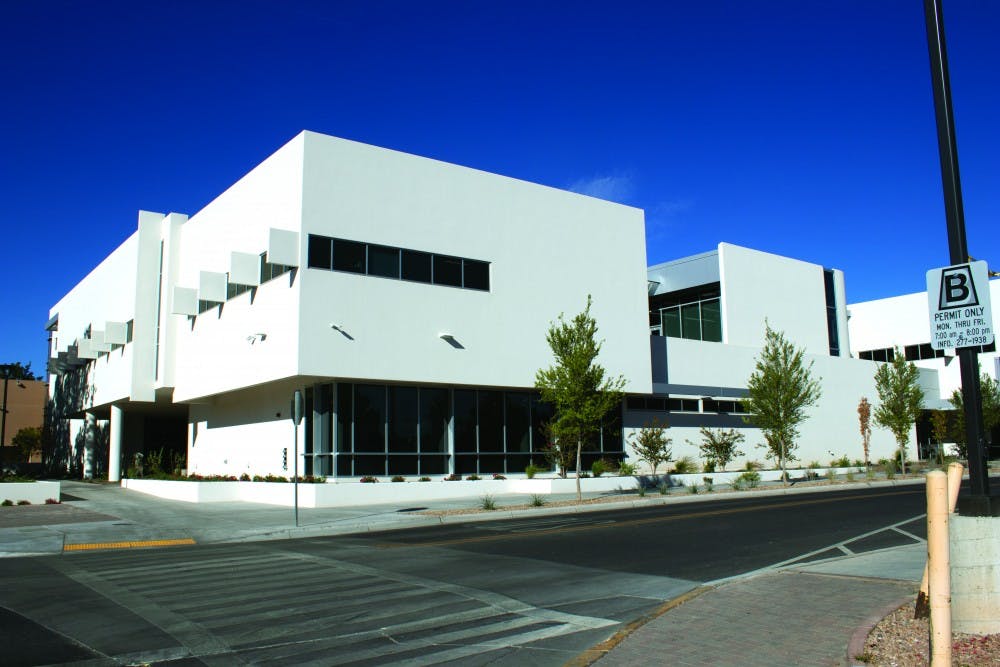Located at the intersection of Yale and Redondo and overlooking Central Avenue, the Physics & Astronomy and Interdisciplinary Science (PAÍS) building recently finished construction, but classes and research won’t be starting so soon.
"We’ll be fully up and ready to serve everyone in the spring semester and probably do a formal ribbon cutting in March, but it is being occupied today," Mark Peceny, the dean of the College of Arts and Sciences said.
The $67 million project was mainly funded through an institutional bond paid for by an uptick in student fees, as well as $27 million from a state general obligation (GEO) bond, according to Peceny.
"We worked closely with student leaders (who) said that in order for people to succeed at the University of New Mexico, we need to provide them the opportunity to work with world-class scholars, to work in world-class facilities," Peceny said.
The new PAÍS building on UNM's main campus, with its gleaming white exterior and sharp swaths of glass wreathing the building's three stories, will facilitate high-level research through new laboratory facilities and a focus on spaces for multidisciplinary interactions.
"This new building is constructed in a way that allows people to do 21st-century science," Peceny said.
According to Peceny, the current Physics and Astronomy building — at the corner of Lomas and Yale — is inadequate for high-level optics research due to the age of the structure and the delicacy of the instruments.
"We’ve created a space in the basement of PAÍS that is perfectly designed to allow people to (do) this kind of optics research," Peceny said.
The Interdisciplinary Sciences Cooperative is a University initiative to bring together experts and students from different academic disciplines to work on problems collaboratively.
"Multidisciplinary teams like the ones supported in PAÍS bring new solutions and outstanding training opportunities unbound by traditional academic disciplines," said Thomas Turner, associate dean for research at the College of Arts and Sciences.
According to Turner, many of the groups with dedicated spaces in the new PAÍS building are focused on multidisciplinary collaboration, such as the Genomics and Technology Center and the Spatial Informatics Research and Education Center.
The PAÍS building is designed to be LEED certified as sustainably built. Due to the energy intensive nature of some of the research inside, the design of the building had to account for its distinctive needs. Peceny said the building was built with a balance between efficiency and research effectiveness in mind.
Get content from The Daily Lobo delivered to your inbox
"The next project that will be our emphasis on the next GEO bond is a new fine arts building," Peceny said.
Due to the sensitive nature of much of the equipment that will be moved into PAÍS, moving into the finished building is a time-consuming process but has already begun.
Colin Peña is a beat reporter at the Daily Lobo. He can be contacted at news@dailylobo.com or on Twitter @penyacolin






